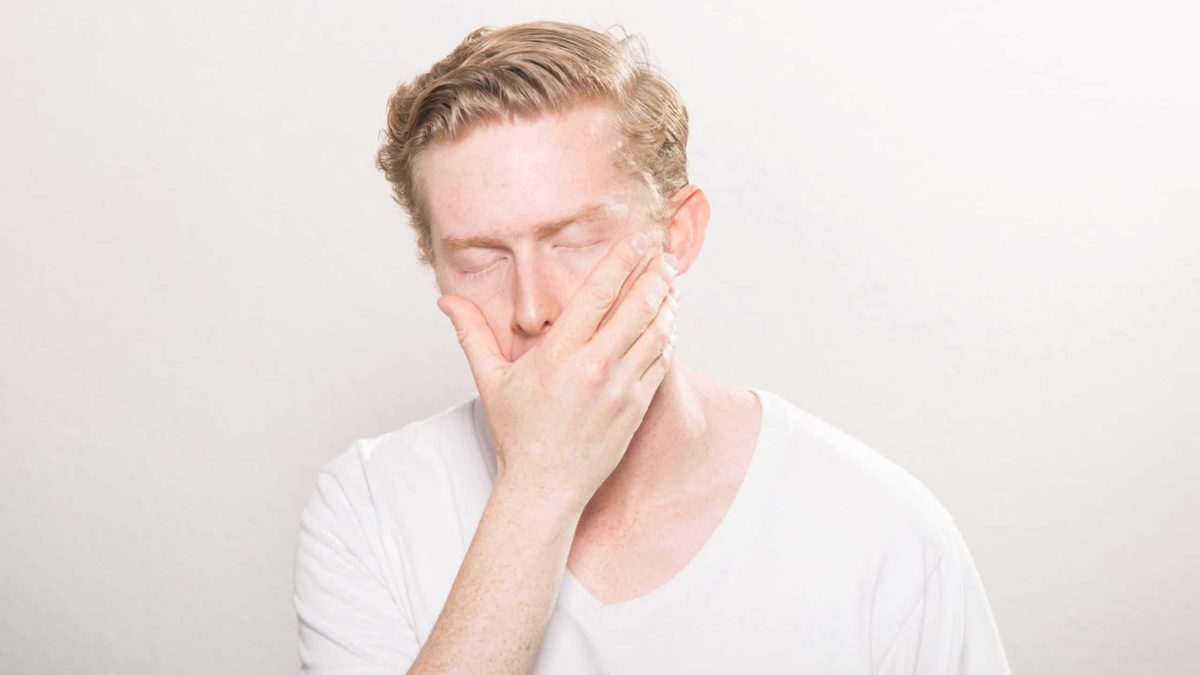Nervous About Going to the Dentist? Try These Tips to Ease Dental Anxiety
You know you’re supposed to visit your dentist regularly, but getting that appointment on the calendar can be tough – and not just because of your busy schedule.
Whether it’s the sterile smell, the buzzing and drilling sound in the background, or the thought of someone being up close and personal in your mouth, going to the dentist can be unpleasant and stress-inducing. In fact, as many as one in three people report experiencing anxiety about dental appointments.
If that sounds like you, there are ways to minimize and manage your unease, says dentist Betty Haberkamp, DDS, MAGD, D. ABDSM.
What are dental anxiety and dental phobia?
Dental anxiety is when you have uneasiness or worry about an upcoming dental appointment. But if you’re panic-stricken or terrified at the thought of a dental cleaning or procedure, that could be a sign of dental phobia.
People with a dental phobia do everything possible to avoid going to the dentist – perhaps only going when extreme pain forces them to. They know that this fear is irrational but are unable to do much to change it.
Other signs of dental phobia include:
- Trouble sleeping the night before a dentist appointment.
- Nervous feeling that gets worse in the dentist’s waiting room.
- Getting to the dentist’s office but being unable to enter.
- Crying or being physically ill at the very thought of visiting the dentist.
If dental phobia keeps you from going to the dentist, you might benefit from working with a behavioural health provider.
Common reasons people fear going to the dentist
There are a number of reasons people avoid the dentist. They include:
- A painful or unpleasant past experience: Dental fear often starts in childhood. It could stem from an unpleasant or painful past experience at the dentist, or from horror stories people hear from others or the media. Thanks to the many advances in dentistry made over the years, most of today’s dental procedures involve considerably less pain and often none at all.
- Fear of needles: When it comes to dental procedures, many people are terrified of needles. Others fear that the anesthesia won’t work on them, or that it won’t kick in before the procedure begins.
- Embarrassment: Whether they let a toothache linger for too long or feel embarrassed about their teeth, some people fear being judged or shamed by their dentist. Or they might feel afraid of getting bad news.
- Loss of control: Many people are uncomfortable with the dentist or hygienist working so physically close to their face. Others feel self-conscious or out of control when they’re sitting in a dentist’s chair with mouth wide open, unable to see what’s going on.
What to do about dental fear and anxiety
If you’re wondering whether you should talk with your dental provider about your fears and worries, the answer is definitely yes.
If your provider knows what your fears are, he or she can better work with you to determine the best ways to make you less anxious and more comfortable.
Here are some strategies to help you cope:
- Ask your dental provider to explain what’s happening at every stage of the appointment or procedure so that you can mentally prepare for what’s to come.
- Establish a stop signal, such as raising your hand, to let your provider know that you’d like them to stop what they’re doing immediately. Use it if you become uncomfortable, want to rinse your mouth or need to catch your breath.
- “If sounds are the issue, we frequently tell people to use earbuds to listen to their favourite music,” Dr. Haberkamp says. “We’ll tap them on the shoulder if we need their attention.”
- If your anxiety is severe, your dentist might recommend using nitrous oxide gas or IV sedation to help calm it.
What to do when your kids are afraid of the dentist
If you’re a parent or caregiver, you play an important role in making your child’s first visit to the dentist a positive experience. It’s normal for them to be fearful of the unknown, or of being away from you. They might express these fears by crying or throwing a temper tantrum.
To help the visit go more smoothly:
- Tell your child about the visit and answer their questions with simple, to-the-point answers. If they have more complex or detailed questions, let the dentist answer them. Pediatric dentists and hygienists are trained to describe things to children in easy-to-understand and non-threatening language.
- Don’t tell your child about any unpleasant dental experiences you’ve had. If you act anxious, your child might pick up on that and feel anxious too.
- Stress to your child how important it is to maintain healthy teeth and gums. Make sure they understand that the dentist will help them with this.
- Get your child an age-appropriate book where the characters go to the dentist for the first time. “The book introduces some of the things that they will see at the dental office,” Dr. Haberkamp says.
- Don’t promise a reward for going to the dentist.
It will also help to let your child’s dentist know if they’re especially fearful. A dentist who treats children will know how to cope with your child’s anxieties and ease their fears.
Article originally appeared at: https://health.clevelandclinic.org/
Author: Health Essentials from Cleveland Clinic
